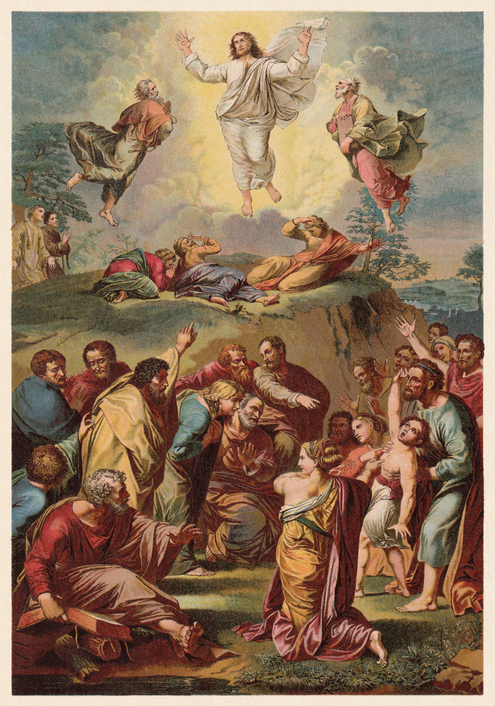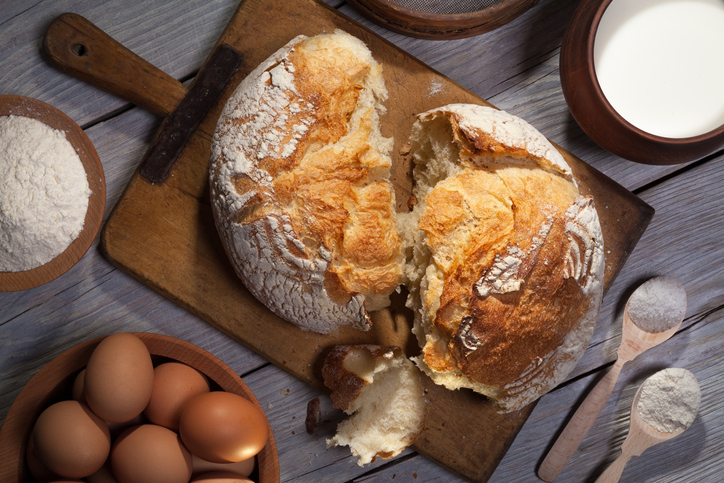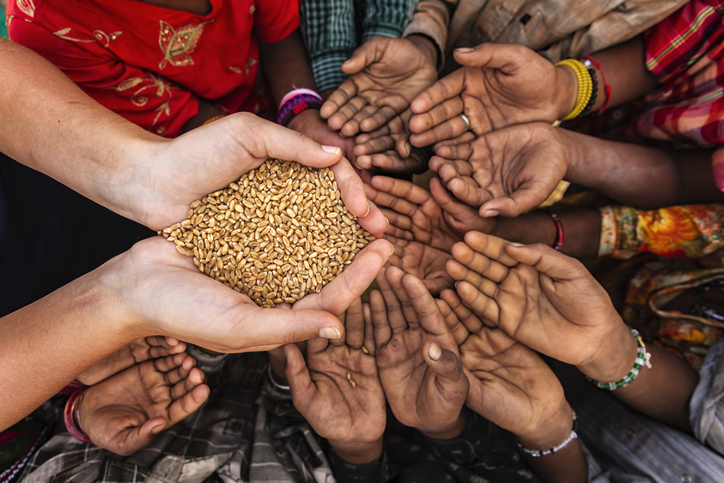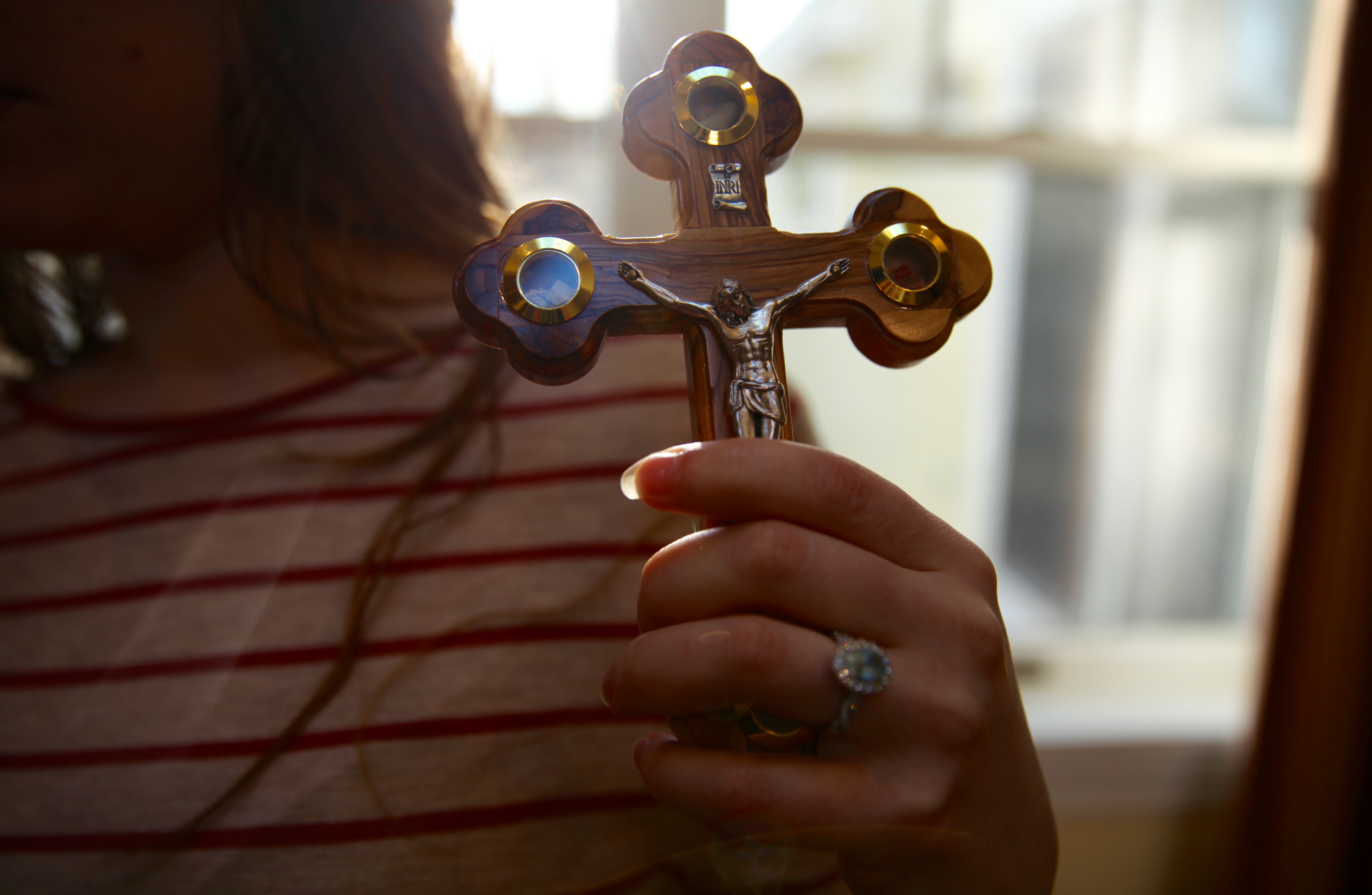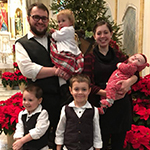I apologize that this was not sent out yesterday. Here is the post for the readings for the Seventh Sunday in Ordinary Time. You will be receiving today’s reflection soon. God Bless!
I don’t know how you felt after hearing today’s Gospel. I was exhausted!
Listening to the words of Jesus made me tired. He is describing the ideal Christian life. He is describing exactly what he came to earth to teach us. And it is just too much!
Just too much? Ok, some of us may think so, and I know I have often thought of it as “too much.” How can anyone stand up to this way of living, of loving? Please, Lord, there must be some times when I can ignore the one who mistreats me; the one to strikes me on the cheek; the one who takes my cloak; those who do not love me, let alone like me. And what of those who are always doing me harm? Those sinners! And those to whom I’ve lent money, only never to have it returned? And what’s this about sinners! They will also only love those who do them good or who love them. Must I be lumped into that category?
Arrggh! It is just too much!
Now — calm down. Take a breath and, if you must, close your eyes and repeat:
Ohm….ohm…ohm.
Ok. The answer to all of this — YES! Unless you try, with all your heart, to live up to this ideal, you will be lumped into the same category you are denigrating. Because if Jesus came for nothing else, it was to show us – not just tell us – but to show us, how to live this ideal and to bring about true peace and personal happiness. It is the only way hope will be brought to the hearts of everyone who believe themselves unlovable, including you and me. It is the only way!
The next question, is, how do we accomplish this ideal way of living. First of all, we have to realize that we will never reach the ideal 100%. But we must, without fail, continue to try each day to live up to it. And to get up and continue when we fall short. It is the lack of trying that makes us a failure. It is in the continued trying that we will produce good fruit. So, how?
The final paragraph of the gospel tells us how: stop judging; stop condemning. Start forgiving and giving. Jesus promises us that our gifts will be overflowing. The graces given us to keep going will not dry up. Every day, you and I must do at least one small thing from this list to continue to grow in grace and love. Every act brings us closer to Our Lord and closer to our goal of being with him for eternity. Don’t despair at what you see going on around you. It is what you do within the chaos of this world that will begin to change the hearts of those around you, in your little part of the world.
Carry with you, besides the words of the Gospel, the words of G. K. Chesterton: “To love means loving the unlovable. To forgive means pardoning the unpardonable. Faith means believing the unbelievable. Hope means hoping when everything seems hopeless.”
You are the vessel that will bring love, forgiveness, faith and hope to everyone deserving – which is everyone!
God Bless.

Jeanne Penoyar, an Accounts Manager here at Diocesan, is currently a Lector at St. Anthony of Padua parish in Grand Rapids, MI. While at St. Thomas the Apostle, Grand Rapids, Jeanne was a Lector, Cantor, Coordinator of Special Liturgies, Coordinator of lectors and, at one time, chair of the Liturgy Commission. In a past life, secretary/bookkeeper at the Basilica of St. Adalbert where she ran the RCIA program for the Steepletown parishes. And she loves to write! When relaxing, she likes reading and word puzzles. You can contact her at jpenoyar@diocesan.com.

